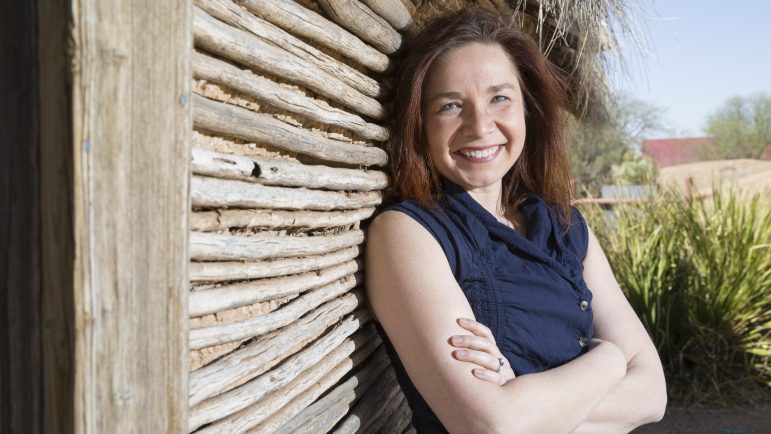Some people might consider Katharine Hayhoe a walking paradox. She’s an atmospheric scientist who believes in human-caused climate change and an evangelical Christian. Many white evangelicals reject some of the science behind climate change. But Hayhoe doesn’t see a conflict between her faith and science. In fact, she says her faith compels action on climate change.
Hayhoe, who co-directs the Climate Center at Texas Tech University, is set to speak Saturday in Birmingham at a conference called “Faith Meets Business: Climate Solutions for the Common Good.”
Life Under a Cloud
Hayhoe says people often lob arguments at her once they find out she’s an atmospheric scientist. People voice objections that sound scientific, she says. They’ll say it’s a natural cycle or note that “it’s been warmer before,” Hayhoe says.
She says others make religious arguments.
“They say things like ‘If God is in control, then how could humans affect something as big as this planet?’” Hayhoe says.
But Hayhoe believes that doesn’t match what the Bible says. She says in the creation story, God gives humans responsibility to care for the Earth. The Bible also warns that those who destroy the Earth will be destroyed.
“There’s a clear mandate in the Bible for humans having a particular role in caring for, stewarding, guarding, protecting this planet that we’ve been given,” Hayhoe says. “Every major world religion has some concept of caring for or being responsible for this shared home.”
Science and faith are both needed to tackle climate change, Hayhoe contends. Science can show that humans are responsible for rising global temperatures, and it can outline possible courses of action, she says. But what’s the right course of action?
“That doesn’t have much to do with the science. It has to do with what’s in our hearts, our values, what’s important to us,” Hayhoe says.
She’s driven by a religious value to care for the poor and vulnerable who will be most affected by climate change.
“When it really comes down to it, if you’re a human living on this Earth, then you already have the values you need to care about this issue,” Hayhoe says.
Heated Conversations
Different people may agree on the underlying data, but there can be real debate on what to do. Hayhoe says a major barrier to addressing climate change is solution aversion. In other words, people don’t believe there are solutions that match their values.
“I’ve been told the only solutions are to destroy the economy, to let China and other emerging economies do whatever they want, to let the United Nations run the world, to take away my truck and nobody can shower anymore,” Hayhoe says. “I’ve even heard people say the only solution really is abortion and if I’m pro-life, then of course I can’t support that.”
Hayhoe says there are a range of climate change solutions from a variety of political persuasions, from libertarian to socialist. She’s not advocating any particular one.
“As a scientist, personally, I know that we just have to cut carbon,” Hayhoe says. “As a human I want to do it in a way that, first of all, doesn’t harm and hopefully helps those who are already suffering and, second of all, a way that most people can agree on.”

